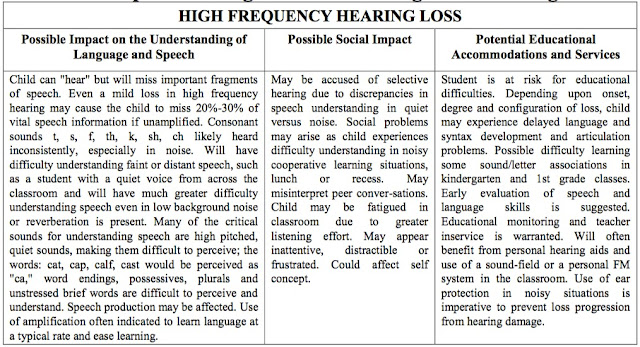Early reading skills and attention in class are the primary impacts of a fluctuating hearing loss. Episodes of fluid lasting months at a time can go unidentified and students can appear to be 'hearing when he/she wants to' or 'daydreaming'. Discover the many factors in a classroom that can affect the listening and learning of a child with fluctuating hearing loss.
©1991,RelationshipofDegreeofLongtermHearingLosstoPsychosocialImpactandEducationalNeeds,KarenAnderson &NoelMatkin,revised2007






